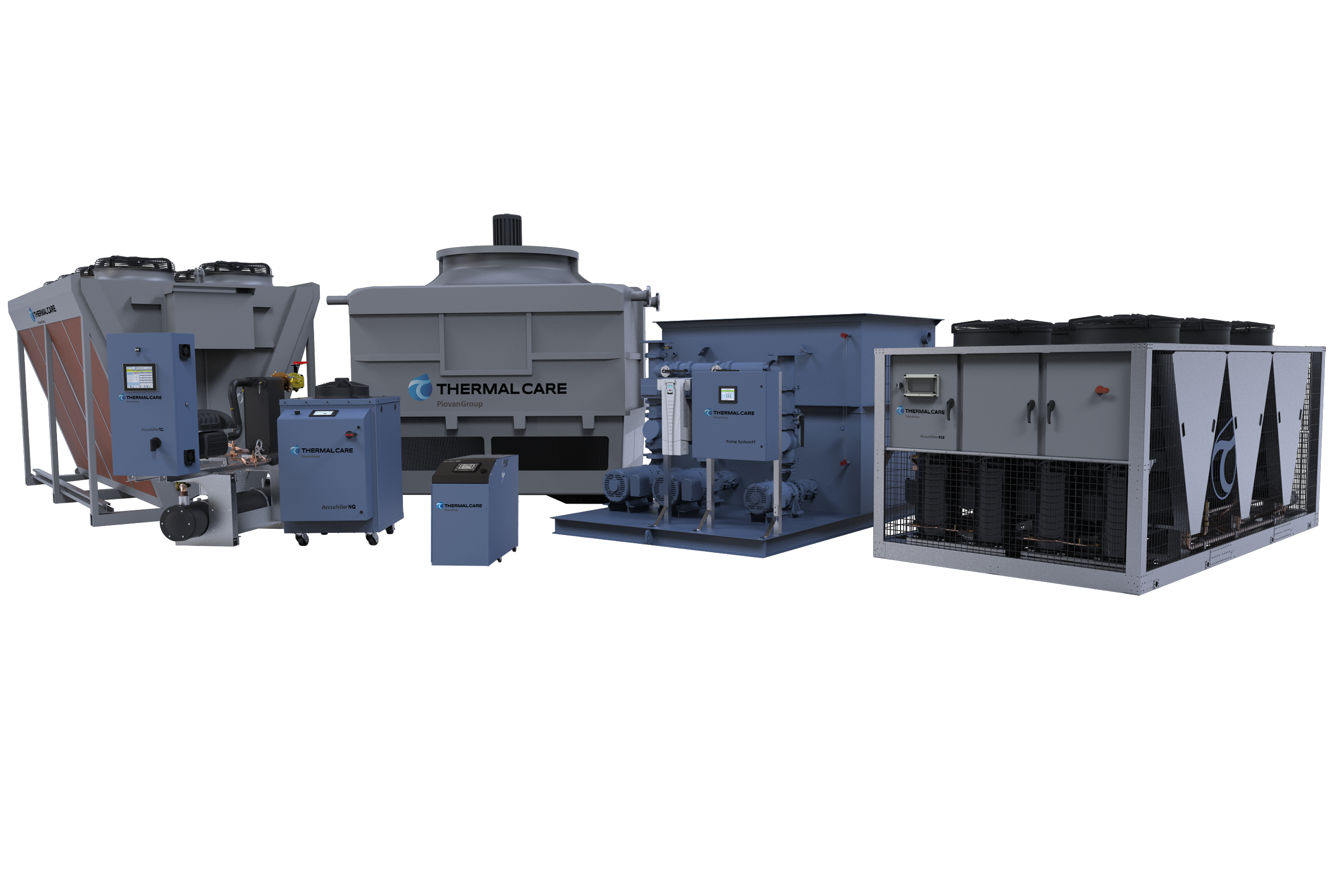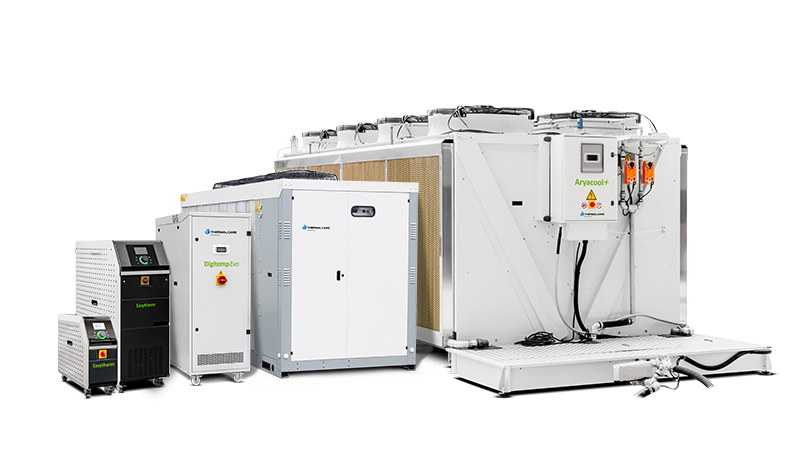What is an evaporator?
Evaporators are heat exchangers that transfer heat from the process fluid into the refrigerant causing a phase change, evaporation. In an evaporator, the refrigerant enters as a low-pressure liquid/vapor mixture and exits as a low-pressure gas. The change of state from liquid to gas occurs at a constant temperature and absorbs energy. A chiller’s evaporator achieves superheated refrigerant vapor. Superheat is when all the liquid refrigerant has evaporated, and the gas temperature increases above its saturation temperature. The process fluid enters as a hot liquid and exits at a lower temperature after transferring energy to the refrigerant.

For more information visit How Does a Chiller Work?




